
Plant-based diets have been in the spotlight of late, but they’re no fad diet. People have been eating more plant-based for environmental, ethical, and health reasons. But despite their popularity, there are still some myths and misconceptions about plant-based diets swirling around.
We’ve teamed up with the folks at healthy plant-based meal delivery service Soulara to help clear them up by tackling the top five misconceptions about plant-based diets. Soulara makes eating plant-based easy by delivering fresh, nutritionally-balanced meals straight to your doorstep.
Been wondering: ‘what are the negatives of a plant-based diet?’ Here’s 5 plant-based diets debunked.
1. I won’t get enough protein on a plant-based diet
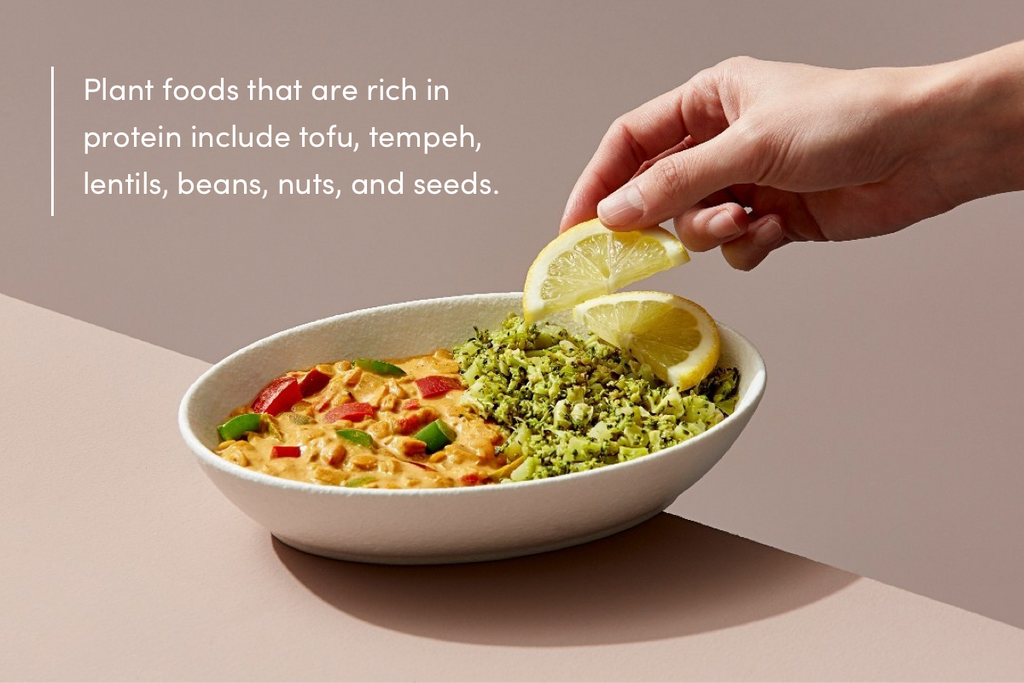
Truth: Although animal sources like meat, fish and eggs are often touted as the best protein sources, we can easily meet our daily protein requirements (an average of 0.8g of protein per kg of body weight) from plant foods.
Plant foods that are rich in protein include tofu, tempeh, lentils, beans, nuts, and seeds. Unlike animal fat, plant-based foods are free from saturated fat, trans fat, and dietary cholesterol, all of which are risk factors for heart disease.
2. I’ll be hungry all the time on a plant-based diet
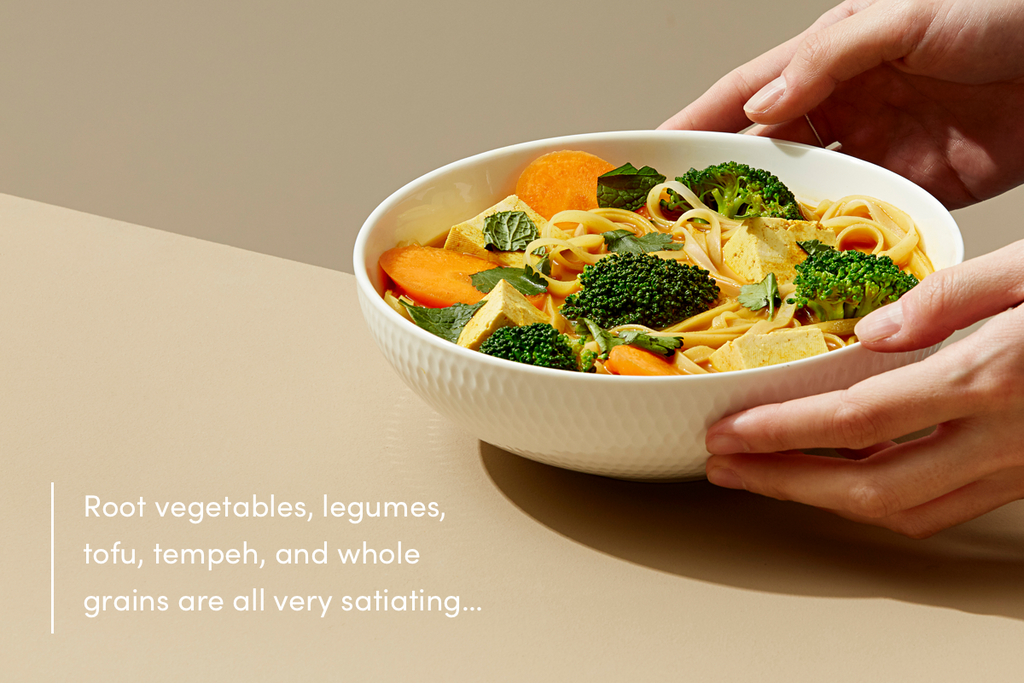
Truth: Lettuce leaves and carrot sticks might not fill you up, but plant-based consists of so much more than that! Root vegetables, legumes (like lentils, peas, and beans), tofu, tempeh, and whole grains are all very satiating due to their high fibre content and keep you feeling fuller for longer.
3. I’ll have to give up all my favourite foods if I go plant-based
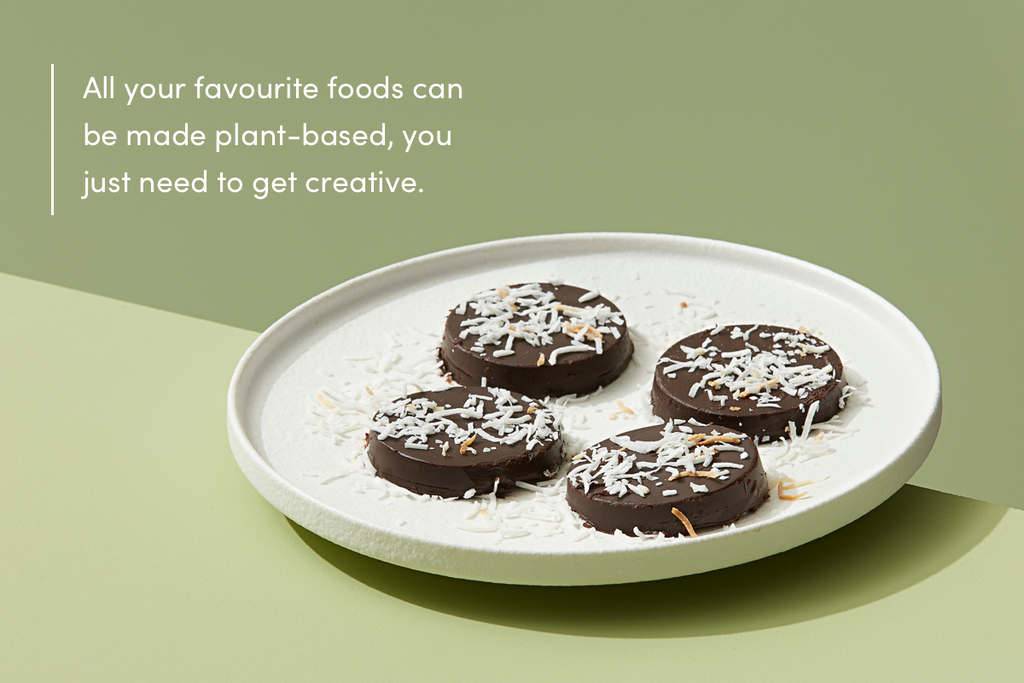
Truth: All your favourite foods can be made plant-based, you just need to get creative. You can still enjoy chocolatey desserts, ice cream, pasta dishes (like Soulara's Nirvana Carbonara and Sunkissed Pesto), and all your other favourites.
Meat can be substituted with mushrooms, tofu, tempeh, seitan, and legumes, cheese alternatives can be made with plant oils or nuts and seeds, and dairy can be replaced with coconut, soy, almond, or oat milks and ice creams.
4. I won’t get the nutrients I need on a plant-based diet
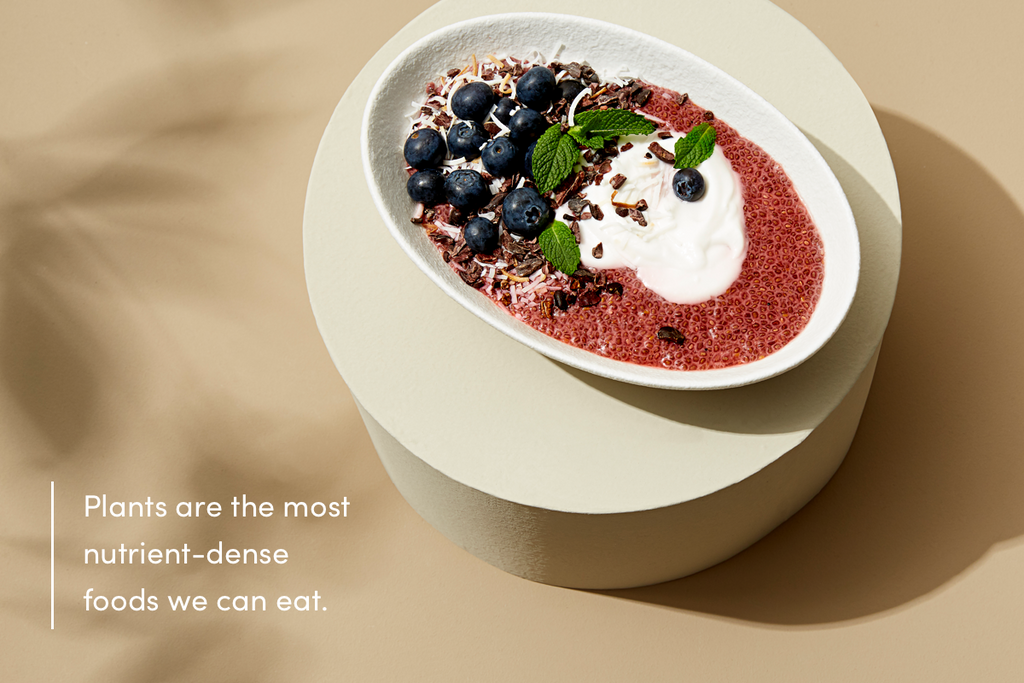
Truth: This common misconception actually couldn’t be further from the truth! Plants are the most nutrient-dense foods we can eat; legumes and leafy greens are rich in iron, calcium and zinc, citrus and tropical fruits like pineapples are high in vitamin C, and berries are high in manganese and vitamin K. By eating a variety of plant-based whole foods, you’ll be able to get all the vitamins and minerals you need to thrive!
The one vitamin plant-based eaters should speak to their healthcare professional about taking as a supplement is vitamin B12, as this vitamin comes from the soil (in fact, many commercial meat products are fortified with B12). You can also get this by eating cheesy nutritional yeast (which Soulara uses in their Jalapeño Mac & Cheeze and Palak Tofu & Turmeric Rice).
5. I won’t be able to build muscle on a plant-based diet
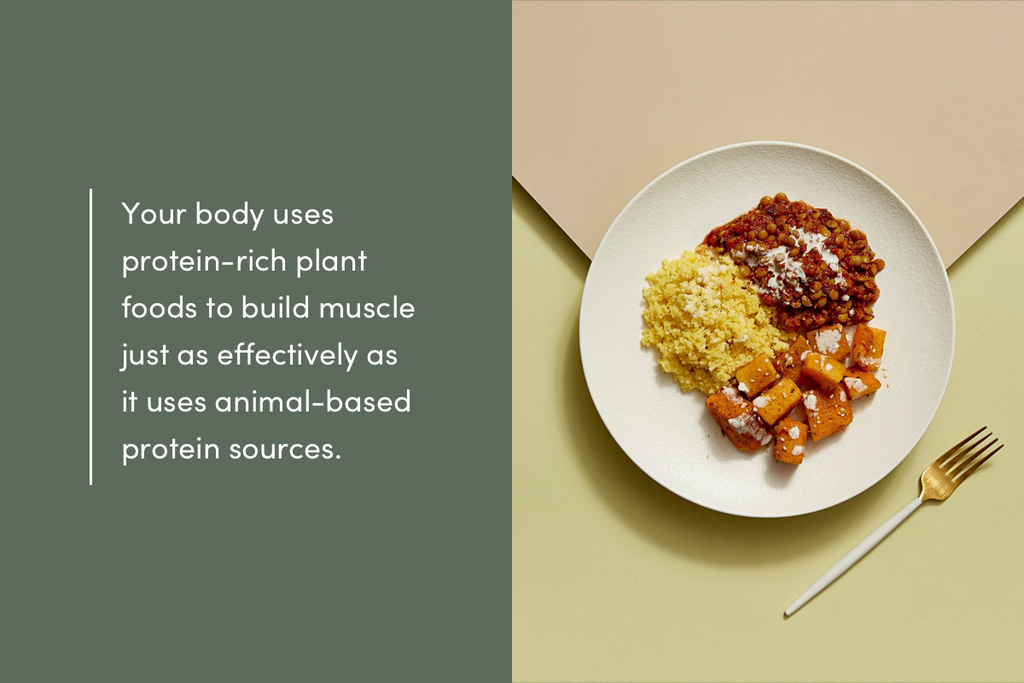
Truth: This ties into the myth of not being able to get enough protein. However, increases in muscle mass and strength are tied to protein intake, regardless of the source; your body uses protein-rich plant foods to build muscle just as effectively it uses animal-based protein sources.
Many athletes eat a plant-based diet, including tennis players Venus Williams, Novak Djokovic, and Nick Kyrgios, endurance athlete Rich Roll, and bodybuilder Patrik Baboumian.
Kickstart your plant-based journey with Soulara and check out their plant-powered blog for advice, tips, and more!
You may also like

Lifestyle
What To Gift a Newborn Baby
We’re a big fan of gifts that are both functional and comfy. Our brand was built with practicality, ease, function and comfort in mind. It was a collective passion, drive and demand for a simpler wardrobe made from sustainable fabrics that supported the everyday lifestyle that drives our brand identity. So when it comes to gifts for a newborn - what better gift than something that is good for them and the planet. A baby’s first wardrobe starts here. Boody Baby is an adorable collection of practical, Australian made baby clothing essentials created from organic bamboo. Perfect for play and sleep, the stretchy fit of our bamboo baby wear clothes is super soft on your bub’s delicate skin. Discover warm baby beanies, booties, baby blankets, bodysuits and more. All designed with zero waste and with your baby and the planet in mind. Natural fabrics - like certified organically grown bamboo are best for a newborn’s delicate skin, as they are breathable, soft and thermoregulating. If we think about baby clothes , including singlets, bodysuits and mittens - choosing natural fibres is the gentlest choice and the most functional gift of them all. To make gift-giving for newborns easier, we have compiled a list of what to buy. Okay, what size do I choose? On average, babies are born between 3-4kg, which generally means a size 0000. You can choose something for them to wear now (newborn) or something for them to grow into. See our size guide for help. Baby Sleeveless Bodysuit Introducing the Baby Sleeveless Bodysuit, gentle on their delicate skin and kind to the planet. Created for warmer days and nights, the Baby Sleeveless Bodysuit is designed with no sleeves and features snap buttons at the crotch for easy dressing and undressing. Finished with our signature trim and overlocked hem, our naturally breathable baby bodysuit is easy to wear and wash. This bodysuit is a staple in our collection of organic baby clothes. - Snap buttons at crotch for easy dressing and undressing - Signature trim - Round neckline Baby Long Sleeve Top Introducing the Baby Long Sleeve Top, gentle on their delicate skin and kind to the planet. Our Baby Long Sleeve Top will keep your little one protected and comfortable while busy playing and exploring. Featuring a Round neckline, snap buttons on the shoulder for easy dressing and undressing and overlocked hems, our Baby Long Sleeve Top is easy to wear and wash. Mix and match this baby top with our assorted bottoms including our Baby Pull-On Pants and Baby Pull-On Shorts. - Round neckline - Snap buttons on the shoulder for easy dressing and undressing - Overlocked hems Baby Pull-on Pants Introducing the Baby Pull-on Pants, gentle on their delicate skin and kind to the planet. Our Baby Pull-on Pants make getting dressed in the mornings easier with an elasticised, wide waistband for comfort and drawstrings at the waist. Our Baby Pull-on Pants pull on with ease and are designed to accommodate bulky nappies. Mix and match these baby pants with our assorted tops including our Baby Long Sleeve Top and our Baby T-Shirt. - Elasticised, wide waistband for comfort - Drawstrings at waist - Designed to accommodate bulky nappies Baby Socks - 3 Pack Introducing our Baby Socks, gentle on their delicate skin and kind to the planet. Our Baby Socks are perfect for every day. Breathable and soft, they feature an elasticised ribbed top for comfort all day long. With a non-slip sole, our bamboo socks for babies are crafted with a little stretch for the perfect fit. Discover our Baby Socks - 3 packs, including 2 plain pairs, 1 striped pair. - Each pack contains three pairs of socks: 2 plain pairs, 1 striped pair - Soft, elasticised ribbed top for comfort all day long - Non-slip sole for safety Stretch Jersey Wrap for Babies Introducing our Stretch Jersey Wrap for Babies, gentle on their delicate skin and kind to the planet. Our Stretch Jersey Wrap for Babies is super soft and super stretchy for easy swaddling. Simply double it over, wrap, pull firm and tuck the ends in well to keep your little one comfortable. Our bamboo baby wrap is the most gentle touch on a little one's sensitive skin - Size: 100cm x 100cm / 39" x 39" in - Contrast edging all around - Super stretchy fabric for easy swaddling Mindful Gifting Our bamboo, Australian made baby clothes and accessories are packaged in a 100% recyclable paper box printed with vegetable-based inks. For the ultimate packaging - wrapped in a cloth following the furoshiki technique. Discover our Baby bamboo clothes collection today. Looking to see our collection worn on very adorable little ones? Follow @boodybabyau

Lifestyle
The Ultimate Beginner's Guide to Zero-Waste Living
So, you have heard the term zero-waste and you’re interested to learn more. A zero-waste lifestyle is about being mindful and considered in your everyday actions. A zero-waste lifestyle is a journey and the notion of avoiding, reducing and eliminating waste from your home and habits will not happen in an instant. The idea of waste-free living is about making considered decisions that are simple everyday swaps. While this lifestyle has a real, community-wide impact, it simply starts with you and your everyday actions.

Lifestyle
Boody x Charlie Evans
Last week, in celebration of our New Nude collection, we hosted a 'nude' art class with @_artbycharlie. Charlie led the class, discussing abstract figurative techniques and started with a drawing exercise, focusing on the lines of the body, shapes, movement, negative and positive space, placing and composition. Our models were in the nude - Boody nudes. They each showcased the new colours and were the drawing focus of the class. Depending on your skin tone, everyone's version of nude is different. We believe that every line, fold, curve, shape, and colour that makes you you is something to celebrate. Our class was inspired by nude being a state of being, not a colour. Discover our collaboration below with images of the day. Shop nudes.































